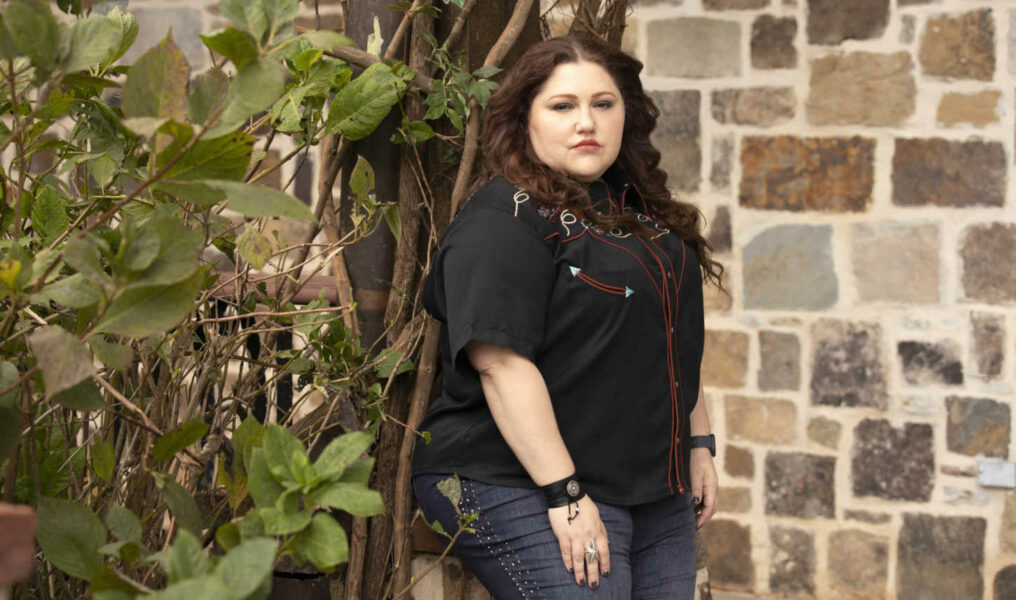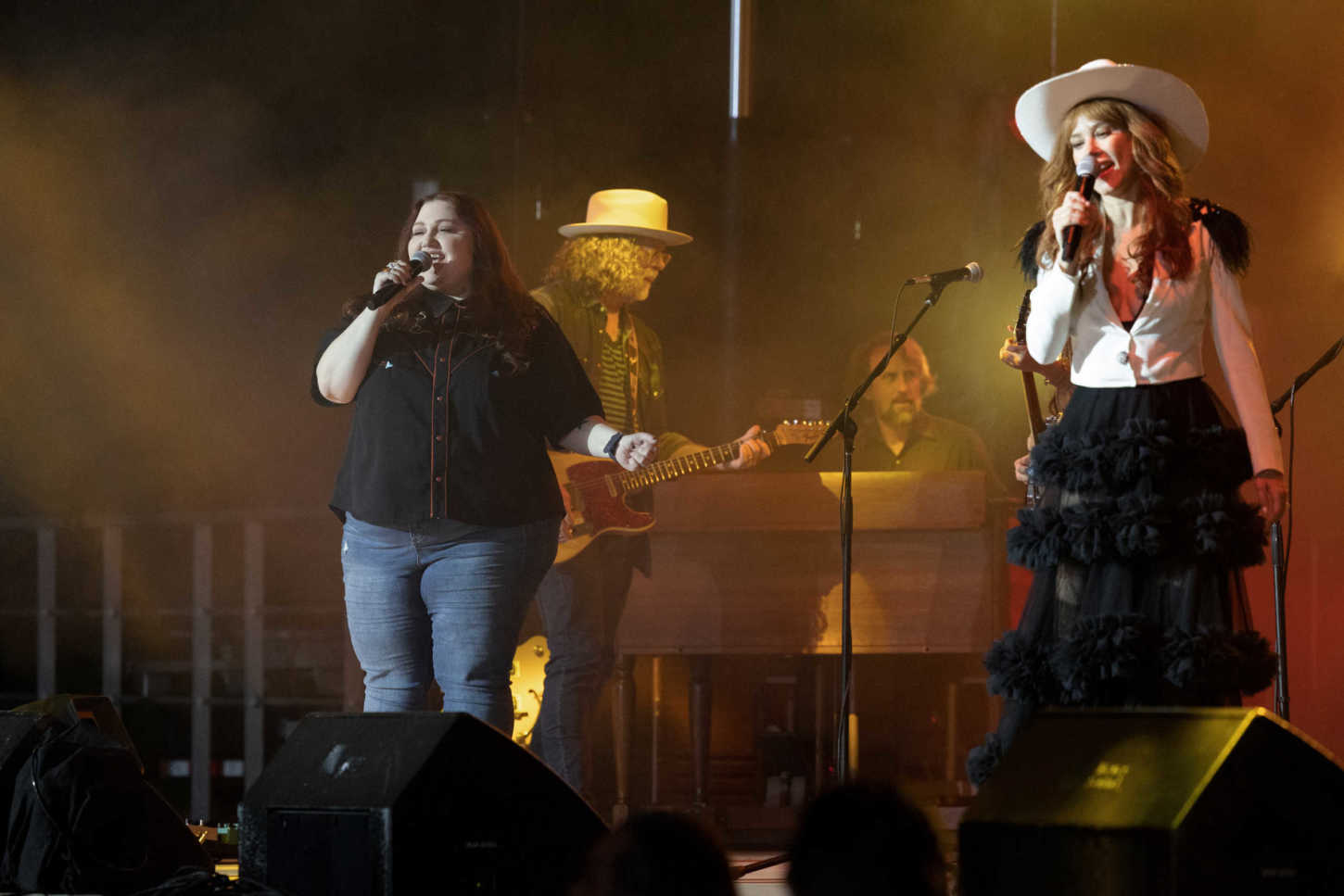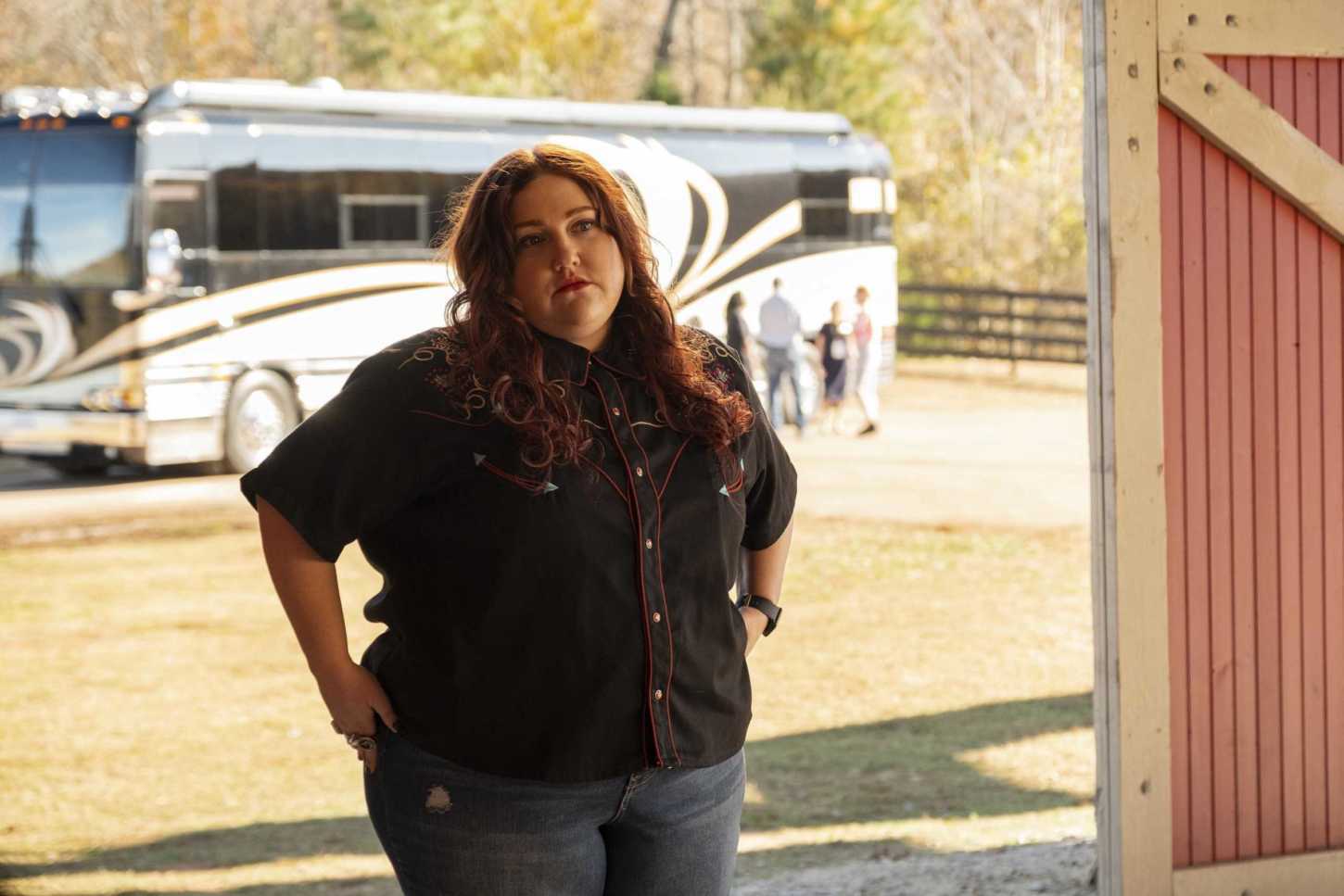‘Monarch’ Star Beth Ditto on Why LGBTQ+ Representation Matters to Kids Everywhere, But Especially in the South
Ditto says she was surprised to play an openly queer, fat person in a country music series

All this talk of authentic representation and, finally, we’re seeing it. In fact, we’re seeing a lot of it in the extremely dramatic new Fox soap-esque series “Monarch.” Here, Gossip frontwoman Beth Ditto, who is proudly fat and queer (and a musician herself), plays Gigi, one of Dottie and Albie’s three children. If this show was a documentary about country music royalty, you’d know Dottie (Susan Sarandon) and Albie (Trace Adkins) by name — they’re the country music superstars behind some of the biggest hits in the genre (the show has fun with this, pretending that they made songs like “Man! I Feel Like a Woman!” famous). All the kids are overshadowed by their famous parents, but it’s Gigi’s struggle that is most relatable to queer people who’ve put their dreams on the shelf because of who they are.
In conversation recently, Ditto spoke about the personal parallels between her and Gigi, the importance of accessible queer representation and what’s next for her own music career.
What about the show jumped out at you immediately when you read the script?
Well, it was more like the description of the characters that they were looking for. “A fat country singer who was a lesbian” was the description. I think they used the word plus-size, but I would say the word fat. So, "a plus-size, lesbian country singer." I was like, “What?” And being from Arkansas and growing up where I did and growing up how I did and being a Southerner in real life, I was just like, “They're crazy if they don't pick me. Who else is going to do it? They're going to get Brandi Carlile. Good luck. There's not that many of us.” I was like, “You have very few choices. And this could be your moment to right the wrongs."
Is that what you said during your audition?
Yeah. I would say I was always half joking, but I was actually pretty serious. I was like, "You should hire someone gay. So if you don't hire me, it should be someone [gay]."

The show is full of country queens, like Tanya Tucker, Shania Twain and Martina McBride. I imagine these are artists that you admired when you were a kid in Arkansas who loved music.
Yes, absolutely. My mom was very much a rock ’n’ roll, cool mom. But my dad was more into country music and was always surrounded by it. There was this huge crossover where all of a sudden it was as big as rock ’n’ roll and pop music. So you had Garth Brooks, Lorrie Morgan and Tanya Tucker. You had Reba, who was killing it with “Fancy.” But the thing was, I had met Tanya Tucker before, and I had met her in Seattle. And because the MoPOP Museum in Seattle was honoring Brandi Carlile. She had asked certain people to perform, and Tanya Tucker was one of them because she had just produced her record that won the Grammy. When I saw Tanya Tucker, I didn't realize that I was going to have the response that I did, but I was weepy. My mother grew up on "Delta Dawn," but I grew up with “Your last teardrop, my last teardrop” [lyrics from Tucker’s song “Down to My Last Teardrop”]. I was really moved to meet her the first time. So when she was on “Monarch,” it didn't matter because she did not remember me from shit. I was like, "I met you." She was like, "Bitch." She's like, "You did?"
I hope she called you bitch.
She's like, "Who, bitch?" She did not. She's feisty but really funny and very friendly. I grew up knowing those kinds of women. Those Southern women who smoked; it was a part of their identity, like, "I smoke."
Your first scene in the first episode when you get to kiss your wife — it’s such a casual statement. As a queer person who loves country music, which is considered a more conservative genre and culture, what did doing that scene mean to you?
I really was like, “This is going to be a thing that queer kids are going to see. And you don't have to have cable.” You don't have to have cable! Does anybody have cable? I still do, I won't lie. Because that's the thing, that those people _do_ exist. And I don't think that's something people think about. When you think about rural towns, really, really rural… the example of this is my nephew who's with me up here in New York visiting and still lives in Arkansas with all my family that still lives there. He lives in the oldest town in Arkansas. Eighty people. Out in the middle of nowhere. And they just got internet. They just got it. And it's not even good enough to stream sometimes. So you have to think about that. Those things are real. But we're not talking about just little kids that need it, but older people aren't necessarily streaming. Even though my mom did blow my mind a couple months ago because she was like, "Yeah, I got Redbox." I was like, "What?" I guess she's got to get that BBC.
What kind of response have you been getting from the queer community about your portrayal of Gigi?
I have mostly heard from people I already know that are really excited about it. And a lot of it's also about size too. A lot of fat girls are like, "Yes, finally." A lot of it's been about that, honestly. Because I think both of those things are a big part of the representation.
Regarding your own music — what’s on the horizon for Gossip?
We started writing a record in 2019, the pandemic happened, and it's just now finished.
Is it pandemic-influenced?
No, because it was written before the pandemic. So what we were working on during the pandemic was the production of it, because that took forever because of the pandemic. I want to start writing a new record immediately, just to reflect on what's going on right now. Even just inside of me and how everything fucking is insane and crazy and frightening. Then just a lot of empowerment and a lot of love and encouragement. And so I really want to write a new record, and I think we're going to start that as soon as we can. We've been talking about it.
Gigi's sexuality has affected the way she feels about her musical career. It’s held her back. As a musician yourself, did that part of her story resonate with you?
Yeah. I know exactly how she feels. Down from having a big sister who was this idea of ideal talent-show beauty versus what I was. She was an academic; I was a creative. She was a blonde; I was a dirty blonde. And then being queer in the Bible belt in a dry county. Email was new. It was like, "Oh my god, I can talk to my friend in Boston? That's crazy."
Did you find queer connection through the internet?
You know what, I was really lucky. And I'm not a spiritual person, but fate somehow intervened because I was so lucky to grow up in the town that I did. There were, like, 1,900 people and my good friend was a queer boy. He was a radical feminist. I knew I was gay really young, but I also knew that I couldn't talk about it. I had conflicted feelings, and that didn't come from my mother. That's the thing. That came from outside the house. And the internet came along and, of course, you had more access to stuff. But I got so lucky. I mean we were the weird kids in town, though. My friends got bullied a lot. I kind of got to escape a little bit because they lived in a bigger town, so their school was a lot bigger. And I went to a really small school where literally I graduated the class with, like, 60 kids. I was probably cousins with five people in my class
But yeah, the internet was great later. Then my little sister, who's 11 years younger than me, when she was coming up, I was always so happy that she had access to things I didn't have. Now it's my little niece. Just knowing that how she identifies as pansexual and she has access to this language and has access to different ideas and meeting different people. And just from her bedroom. It's so empowering.

Regarding the intersection between queerness and country music: I don't think a character like yours could exist in a show like this years ago.
I was surprised that this was a role that they were going to have. And honestly, I'm a little surprised that they actually picked someone like me to do it. And not [just] gay, but somebody who just will say anything. Like, I identify as queer. And I will talk about that.
And then to boot, you get to sing a Lizzo song.
That's so crazy. I'm so happy with this song. Because I really love her. But you want to hear something insane? Her stylist is from Bald Knob, Arkansas, which is literally the town over from where I grew up. It's a white county. So there's this group of gay [people]. This is a connection, too, to the gayness: Her stylist's boyfriend came to a Gossip show in Chicago in probably 2007 or something. I'm not sure of the time. But he was a lot younger. And he was holding a sign that said, "I'm from Judsonia." And that's where I'm from. I lost my shit. Lost my shit! So we stay connected over social media. He's still in Arkansas. Starts this incredible night. Starts running the house. It's just a group of queer kids in Little Rock living together. [The house] is called the House of Avalon. They started a queer night called Glitter Rock and moved to L.A. together, just like Gossip did. We moved to the Pacific Northwest together from Arkansas. They start House of Avalon out there. They're doing all this shit. I mean, they're killing it. And then one of those kids goes on to become Lizzo's stylist.
I'm glad you shared that story because, back to your point, I hope some kid in small-town Arkansas sees this and reads that story and it inspires them to believe that they too can make something of their life.
And that's it. People got really comfortable. We had Obama, things were good. We had to fight for the rights and protections of our trans brothers and sisters, all these things. And so we got comfortable, and now we're seeing the backlash of that. You forget how it's still important. Because what Gossip did, as small as a thing as we were, especially in America, that one kid in Bald Knob, Arkansas, in Judsonia, that I didn't know, who’s like 10 years younger than me, sees this and then they hold onto that. So just when we get comfortable, when you think you know everything, is when you should start opening your mind even more.










